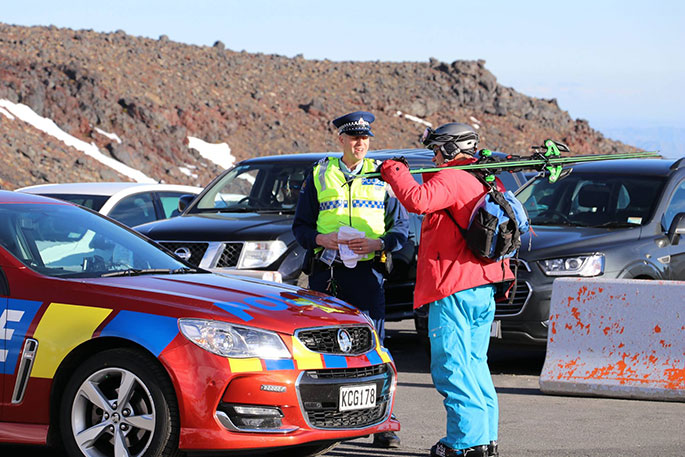An operation aimed at drivers heading to and from ski fields has revealed tired drivers at the wheel, as a main cause of concern.
Operation Hotoke, which ended this week, is a driving campaign that focuses on the heightened risks on alpine roads during the ski season.
It aims to make drivers aware of safety in these environments and involved highly visible Police presence around popular alpine routes and commonly used roads through which people travel to and from the ski fields.
Acting National Manager Road Policing Inspector Peter McKennie says public response to the campaign has been overwhelmingly positive.
'Public interaction has been really positive – people have been coming up asking what we're doing.”
'A lot of people are making good decisions and it's provided us with an opportunity to have some good conversations about some of the decisions drivers are making,” says Peter.
'A lot of the issues we've seen have been around fatigue.”
'Some people are heading up the mountain to go skiing for 1-2 days and traveling long distances, they're getting up early, doing a full days ski and then travelling home for 5-6 hours – in some cases even longer.”
'We had a guy in Ruapehu coming off a full days' ski, looking pretty tired then planning to drive right to the far north – a 7 hour drive,” he says. 'He hadn't even thought about how tired he might be on the drive home.”
'Some drivers have been planning trips really well – they don't ski on the day they travel home, or they have a sleep before they drive home, or they don't do a full day of ski.”
'Overall it's enabled really good conversations to take place and it's made people think about their travel and fatigue,” he says.
'Things like if passengers start falling asleep that it's a good sign to stop and have a break too.”
Peter says seatbelt use was also identified as an issue. He says that over a third of people who were killed on roads last year, died because they weren't wearing seat belts.
'We noticed that there are still a few people not wearing seatbelts and children who are not restrained,” he says.
'Some people were discovered to be travelling with babies on their knees because they're uncomfortable in their car seats and it's so risky.”
'Kids get cranky, we understand that: so stop, take a break until they get relaxed and then continue your journey after that.”
The Operation was also featured heavily on social media, reaching the engagement of over 240,000 people and overall, has highlighted the need for general safety awareness on roads, says Peter.
'No matter when or where people are driving – just be very conscious of road safety at all times and be mindful of weather conditions and the environment around you.”
'Things can change in a big hurry so drive in a manner and at a speed where if something happens you are in a position to respond to it safely.”



0 comments
Leave a Comment
You must be logged in to make a comment.